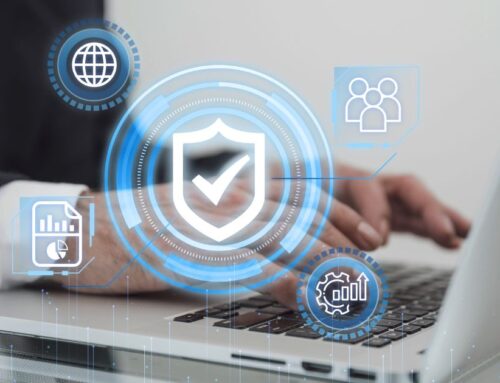Most healthcare facilities have begun changing to electronic health records (EHR) or have started the EHR implementation process. Although electronic healthcare records provide patients, medical providers, and medical billing operations with benefits that include workflow efficiencies, improved provider-patient communication and access, as well as the ability to more easily share treatment plans, diagnostic reports, and more, EHR implementation challenges still arise.
Table of Contents
- What Are Electronic Health Records?
- How Important Are EHR Systems in Medical Billing?
- EHR Implementation Challenges
- Overcome EHR Implementation Challenges
- Benefit From The Seamless Integration of EHR Implementation
What Are Electronic Health Records?
Electronic Health Records, also abbreviated to EHR, are digital copies of an individual’s health record. Previously, health records were physical documents that needed to be transcribed, scanned, or physically sent to another provider or the patient upon request, creating a laborious, time-consuming process that sometimes led to missing or incomplete records.
Benefits of Electronic Health Records
When implemented correctly, electronic health records offer patients and providers near-immediate access to vital patient health information in addition to billing efficiency. In some cases, having this information readily accessible can provide life-saving information about a patient. Electronic health records are not simply a transition from old to new— they can provide a significant benefit to everyone in the healthcare industry.
Furthermore, EHR systems are also important in medical billing because they can create billing efficiency for medical billing staff due to the opportunities for higher performance without sacrificing the quality of patient care.

How Important Are EHR Systems in Medical Billing?
When it comes to medical billing, electronic health records can provide an avenue for streamlining workflows and for billing efficiency. As an example of how an EHR system can be of benefit to the medical billing component of a healthcare system, consider how they can impact efficiencies. The result is less paperwork, less of an environmental impact, and less training when you invest in an outsourced medical billing company.
Everyone in healthcare has encountered jokes about the illegible nature of a doctor’s handwriting, but it isn’t funny when it slows down or stops approvals or payments because the medical billing staff can’t read the doctor’s diagnosis. Electronic health records take this factor out of the equation because the text is wholly accessible by all.
EHR systems provide a number of medical billing benefits beyond clarifying a doctor’s handwriting. These systems can readily pull medical coding information and cut down on the time it takes to process a bill. While there are a myriad of benefits to having a system that works with electronic health records, there are some EHR implementation challenges.
EHR Implementation Challenges
Unfortunately, even the best-laid plans can be fraught with adversity, and healthcare providers face a number of challenges in their attempts to install an EHR system.
EHR Implementation Challenges: Technologically Deficient
One of the chief complaints derived from EHR implementation challenges has to do with people, whether it is the providers themselves or the patients. Seniors and aging adults often need the most healthcare services, but they are also not nearly as technologically inclined as their younger counterparts. They may not understand or have the ability to interact with their electronic health records, which presents an EHR implementation challenge for healthcare providers. How do providers bridge the gap between those who can navigate the electronic healthcare record and those who can’t?
Additionally, there are some healthcare providers who are still practicing and phenomenal in their job, but they may not be able work within an EHR system as easily as a document-style system. While electronic health record implementation provides opportunities to enhance patient care overall, some providers are unable to use an EHR system in a meaningful way.
EHR Implementation Challenges: Reliance on Tech Infrastructure
Many healthcare facilities face EHR implementation challenges when it comes to sharing electronic health records, specifically with regard to the technology required to use the electronic health record system. Internet and hardware must be capable of handling the patient information security, as well as the overall data load. While most hospitals and facilities have access to high-speed, secure internet, those facilities in more rural settings may not have those technologies available.
EHR Implementation Challenges: Third-Party Support
If the information is cloud-based, EHR implementation challenges can go beyond simply training staff to use the software because they may have to rely on a third party for support. These systems can also be more vulnerable to hacking attempts, which means a higher level of cyber security is needed. These can also present cost barriers for some facilities that operate on a strict budget. Patient information security should be a priority among all healthcare facilities, even if a third-party team is responsible for it.

Overcome EHR Implementation Challenges
Regardless of EHR implementation challenges, EHR systems are required by healthcare practices in the United States, which means that it is necessary for healthcare facilities to figure out ways to overcome challenges presented by electronic health record implementation.
Invest in Electronic Health Record Technology & Security
Because electronic health records rely on technology and security, it is important to invest in having ample security and the right technology in place to support the EHR system. Having this in place before attempting to implement electronic health records will save everyone, including medical billing staff and your patients, from the headaches of not being properly prepared.
Another way your practice or healthcare facility can overcome EHR implementation challenges is to make sure that the right people are handling the right information. By outsourcing your medical billing, you will have the peace of mind knowing that your billing operations will be handled, safely, securely, and with the right training. Using data abstraction can help you optimize your electronic health record process.
Plan for Electronic Health Record Training
Healthcare providers can overcome EHR implementation challenges by planning ahead with electronic health record training for staff — and patients. While patients won’t necessarily want or need to attend a class, having information literature, videos, or staff available to guide patients and answer questions will help you overcome EHR implementation challenges.
Opt for Transparency With Electronic Health Record Implementation
There isn’t a person alive who wishes they had less transparency from their medical provider! Using a platform that allows the patient to see their records can prevent unwanted EHR implementation challenges while improving your medical billing practice. Communicate to your patients and staff ahead of time that you will be switching to an electronic health record platform and give them time to adjust to the idea of an electronic health record system. Be sure to add in the benefits we mentioned so that people will have a positive outlook when considering the change.

Benefit From The Seamless Integration of EHR Implementation
Although it is possible to experience a number of EHR implementation challenges, using electronic health records can be beneficial to your practice, especially when you have seamless integration. You can experience this with robust planning, technologically prepared billing operations, and the proper patient information security in place.
Choose a leader in revenue cycle management and healthcare technology to move your facility from using dated documents to efficient and technologically advanced medical billing. Contact us today to evaluate your medical billing needs!





